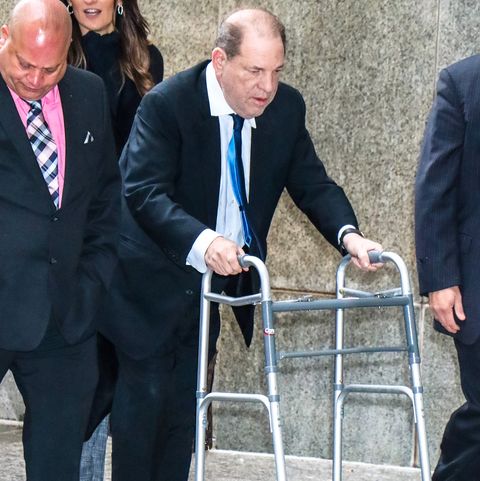In what New York Times journalists Megan Twohey and Jodi Kantor describe as a “contentious” hearing on Tuesday morning, a federal judge rejected a proposed civil settlement in the sexual harassment cases against embattled Hollywood producer Harvey Weinstein.
Judge Alvin K. Hellerstein questioned the $19 million deal for the dozens of women who have accused Weinstein of misconduct, specifically calling out its plan to help Weinstein pay legal defense costs, according to NBC.
“The idea that Harvey Weinstein could get a defense fund ahead of the plaintiffs is obnoxious,” Hellerstein said, according to Reuters.
Under the proposed deal, Weinstein would not have had to admit any wrongdoing or shell out his own money. Instead, his accusers would have been paid out by insurance companies representing his former studio, The Weinstein Company, which filed for bankruptcy.
The sum was a far cry from the $90 million victims’ fund that was discussed last year.
Several alleged victims had previously voiced discontent with the terms, telling the Times it made them feel “defeated and hopeless,” and filing formal objections.
“The judge identified so many problems, it was not even close,” John Clune, a representative for one of the women, told the Times. “Functionally, the whole thing has been thrown out. Everyone wants a good result for these survivors. This wasn’t it.”
Indiana University professor Dr. Jennifer Drobac, who specializes in sexual harassment law, said complainants in the Weinstein case expected both appropriate financial compensation and a recognition that their claims were legitimate. In the proposed deal, they got neither.
“They want money, sure, for medical bills or for lost pay,” Drobac told ELLE.com. “But they also seek acknowledgement that they’ve been aggrieved. The problem with this settlement is there’s no admission of liability. Weinstein isn’t paying for it himself, an insurance company is, and so these women aren’t getting any true vindication.”
The settlement highlighted a bigger issue at hand: that current sexual harassment law does not adequately address the harms caused by the problem. In a statement sent to ELLE.com, representatives of the Time’s Up Foundation describe it as a “broken system” that privileges powerful abusers at the expense of survivors.
“When perpetrators have assets, they’re able to avoid people they harmed by taking bankruptcy and then taking an escape in the moment when everything is hot,” Drobac says. “It allows them to resurface later and continue earning lots of money. That’s why these women are so frustrated, because they can see that happening with Weinstein in the future.”
In March, Weinstein was sentenced today to 23 years in prison after jurors in his Manhattan trial found him guilty of a felony sex crime and rape but acquitted him of predatory sexual assault, the top two charges against him.
To date, more than 80 women from all over the world have accused him of sexual assault and harassment going back decades.
This content is created and maintained by a third party, and imported onto this page to help users provide their email addresses. You may be able to find more information about this and similar content at piano.io


